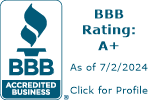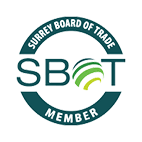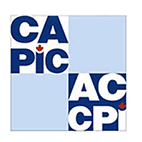Planning to move to Canada but have a low CRS score? Worry not because if you are good at the French language, then you can achieve your ‘Canadian dream’ soon. That’s because French is one of Canada’s two official languages other than English. The language is highly relevant in the Canadian cultural and economic landscape because of the prevalence of several French-speaking communities. It’s interesting to note that about 22% of Canada’s population are French speakers.
Moreover, the maximum number of people who speak French live in Quebec (84.1%) and around 1 million French-speaking people live in other provinces and territories of Canada. Furthermore, around 10.7 million Canadians can converse in French.
Hence, the French language holds a lot of significance for the Land of Maple Leaf as Canada recognizes and values bilingualism. Federal institutions in Canada are also bilingual. The Official Languages Act enacted in 1969 was meant to ensure respect for both English and French as the official languages in Canada. There are more than 3,000 French‐language primary and secondary schools, around 75 French‐language colleges and nearly 30 French-language universities in Canada.
French-Speakers: A Priority for Canada
Recently, Marc Miller, Minister of Immigration, Refugees and Citizenship announced the 2025-2027 Immigration Levels Plan. As per the plan, the Canadian government will focus on strengthening Francophone communities outside Quebec to support economic prosperity. The immigration target for Francophone immigration has been set to:
- 8.5% in 2025
- 9.5% in 2026
- 10% in 2027
Looking at the current developments now is the right time for French-speaking people to immigrate to Canada. Beginning July 7, 2023, the IRCC introduced category-based rounds of invitation in Express Entry draws. These draws targeted French-speaking candidates specifically. According to IRCC, the minimum score for all four language abilities (writing, reading, listening, and speaking) in French should be Niveaux de compétence linguistique canadiens (NCLC) 7.
50 Additional CRS Points
You can gain up to 50 additional points if you reach NCLC level 7 or higher in each of the four French language skills. This is designed to encourage French-speaking immigrants to settle outside of Quebec and contribute to Canada’s bilingual nature:
- 25 points if your English score is CLB level 4 or below, or if you didn’t take an English test.
- 50 points if your English score is CLB level 5 or higher across all four skills.
This means that even if French is your second language, you can still benefit from these additional points, making it a great opportunity to boost your CRS score and improve your chances of receiving an invitation to apply for permanent residency.
Great Option for Low CRS Scoring Candidates
The good news for you is the CRS for French-speaking category draws is also low ranging from 336-444 as per the recent draws held. Hence, it’s a good opportunity for you to polish your French-speaking skills and apply for Canadian permanent residence as soon as possible.
Advantages of Canadian PR for French Speakers
As a French-speaking newcomer who established themselves in Canada outside Quebec, you can benefit from French and English job opportunities. You can also benefit from education and services in both languages. For example, French language skills can open doors to highly desirable roles within the Government of Canada, which must offer services in both official languages, as well as in some provincial governments.
Additionally, Bill C-13 mandates that federally regulated private businesses provide service options in French. If you’re interested in teaching French, there are numerous opportunities across Canada, as French immersion schools are dedicated to teaching children in French. Even the Canadian tourism industry caters to French-speaking visitors around the world.
If your family chooses to live in a Francophone community, you can also learn English skills and take free language courses. You can avail of community, healthcare or daycare services in French. You can also get support from your community to help you settle and feel at home right from the beginning. It’s easier for you to integrate into the culture of these communities as they compose of people who are French-speaking.
There are 14 Francophone communities in Canada that are helping French-speaking newcomers to settle and build their news lives. These include:
- Évangéline region (Prince Edward Island)
- Clare (Nova Scotia)
- Haut-Saint-Jean region (New Brunswick)
- Labrador City-Wabush (Newfoundland and Labrador)
- Hawkesbury (Eastern Ontario), Sudbury (Northern Ontario)
- Hamilton (Southwest Central Ontario) and others.
Ready to Apply for a Canadian Visa Application
Apply for a Canadian Visa with the help of our Licensed RCIC Experts.
Pathways for French-Speaking Applicants to Move to Canada
Canada offers opportunities for French-speaking foreign workers to seek both temporary and permanent residency outside Quebec. These pathways include:
1. Express Entry- French Language Proficiency Category
This is a quick and easy pathway for immigrating to Canada. Express Entry is an online application system that creates a pool of candidates who may be eligible to immigrate to Canada permanently. You must be eligible for one of the immigration programs in Express Entry to get into the pool. You earn points based on the information in your profile, including your skills and experience.
You need to have one of the highest-ranking scores to get an invitation to apply for permanent residence. However, there are category-based draws under Express Entry to help meet an identified economic goal. French language proficiency is one of the chosen categories in 2024. Going by the trends in the last few draws in this category, the low CRS is making it attractive for French-speaking candidates to apply.
2. Francophone Mobility Work Permit
- French-speaking temporary workers can obtain a facilitated work permit without a Labour Market Impact Assessment (LMIA) for qualified positions and territories other than Quebec.
- To be eligible for this work permit, you need to live and work in one of Canada’s nine provinces or three territories outside of Quebec.
- You should demonstrate that your French speaking and listening abilities are at an intermediate level, equivalent to NCLC level 5 or higher.
- You should hold a job offer that falls under any Training, Education, Experience, and Responsibilities (TEER) category of the National Occupational Classification (NOC) system, except if the offer is for a primary agriculture position classified under TEER 4 or 5.
3. New Brunswick Strategic Initiative Stream
The New Brunswick Strategic Initiative Stream, part of the New Brunswick Provincial Nominee Program (NBPNP), provides a valuable pathway for French-speaking individuals seeking to immigrate to Canada. Managed by the Government of New Brunswick, this program is specifically designed for skilled workers who are committed to settling permanently in New Brunswick and contributing to the province’s thriving economy.
Unlike family reunification programs, this stream focuses on selecting candidates who can support New Brunswick’s economic development with their skills, education, and relevant work experience.
To be eligible, applicants must demonstrate proficiency in French, express a genuine intention to live in New Brunswick, hold at least a Canadian secondary education or its equivalent, and establish a qualifying connection to the province—such as an exploratory visit, a job offer, or a demonstrated alignment with
New Brunswick’s strategic priorities. For complete information on eligibility criteria and application requirements, please consult the official guide to the New Brunswick Strategic Initiative Stream.
4. Ontario French-Speaking Skilled Worker Stream
The Ontario French-Speaking Skilled Worker Stream is part of the Ontario Immigrant Nominee Program (OINP). It offers an advantageous pathway to Canadian immigration for French-speaking skilled workers.
This stream is designed for individuals proficient in both French and English, facilitating a path to permanent residency in Ontario. To be eligible, applicants must meet the general criteria of the OINP, including specific language requirements: a minimum of NCLC Level 7 in French and CLB Level 6 in English.
As one of the Human Capital streams within the OINP, this initiative selects candidates from the Express Entry pool who possess the skills and potential to contribute meaningfully to Ontario’s workforce.
5. Nova Scotia Labour Market Priorities Stream
The Nova Scotia Labour Market Priorities Stream, part of the Nova Scotia Nominee Program (NSNP), is another promising pathway for French-speaking applicants interested in Canadian immigration. This stream specifically targets individuals working in high-demand occupations or those who are proficient in Nova Scotia’s language priorities.
Integrated with the federal Express Entry system, successful applicants benefit from a substantial 600-point increase to their Express Entry profiles, greatly enhancing their chances of receiving an Invitation to Apply (ITA) for Canadian permanent residence. With a vibrant Francophone community of nearly 100,000 people and deep historical roots, Nova Scotia offers a welcoming environment for French-speaking newcomers.
6. Quebec Experience Program
The Quebec Experience Program was created for foreign students who are Québec graduates or temporary foreign workers. Under this pathway, you can obtain a Québec selection certificate to settle in Québec permanently. For Québec graduates, they need to have a knowledge of spoken French that corresponds to level 7 and written French that corresponds to level 5. For temporary foreign workers, need to have a knowledge of spoken French that corresponds to level 7 of the Québec scale of French proficiency levels.
If you’re depressed after reading about cutting down immigration targets for 2025-2027, then the French language should be a focus for you to achieve the Canadian dream. Start learning French today and achieve proficiency, so you can apply for any of these pathways and start your new life in Canada.
Navigating the complexities of immigration can be challenging. That’s where professional advice comes in. Keshav Sharma, a licensed expert and Regulated Canadian Immigration Consultant, leads a team of seasoned professionals handling cases like yours. Our team is equipped with the knowledge and experience to guide you through every step of the process. Don’t leave your immigration journey to chance. You can contact our experts today to get started on your Canada visa application.









